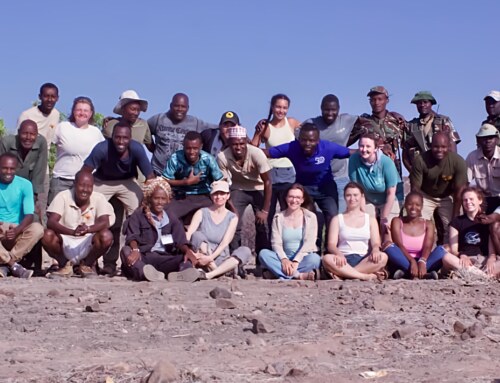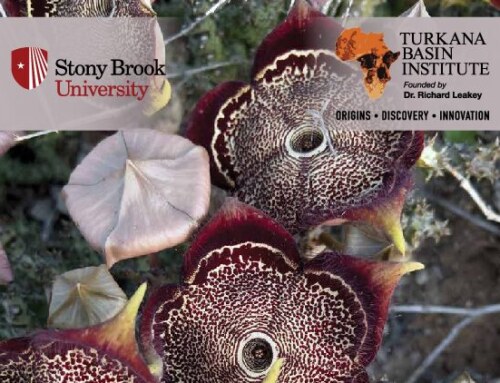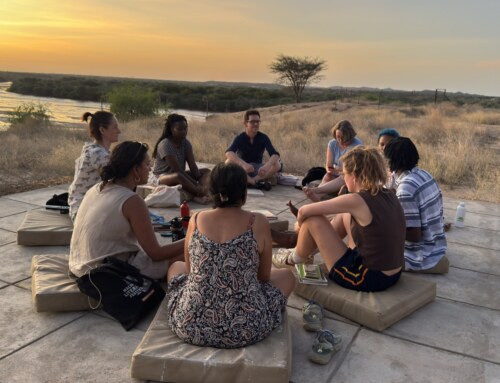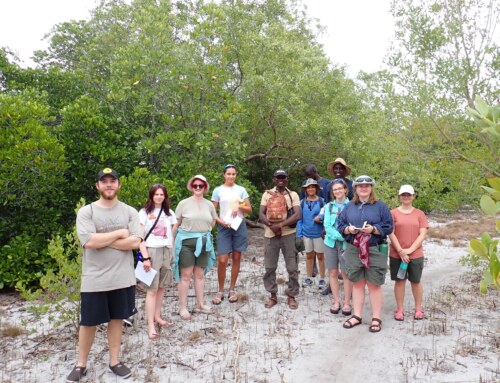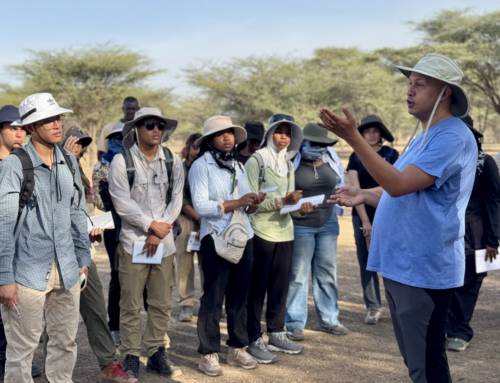
TBI classroom at Ileret campus, Turkana. Photo by Kenneth Duncan
In the Turkana Basin, where fossils tell stories of evolution, a different kind of exploration is taking place. Scientists at the Turkana Basin Institute (TBI) have spent decades uncovering secrets of human evolution from sediments, a new group of explorers is looking in the opposite direction, toward the stars.
This year, the DARA Astronomy Field School brought together bright young minds from South Africa and Mozambique for a two week experience at TBI Ileret. With some of the clearest night skies on the planet, this remote spot on the edge of Lake Turkana was the perfect classroom for students to learn about the cosmos.
A First Glimpse of the Universe
For many students, the excitement began on the very first night. Looking through a 20cm optical telescope, they caught their first-ever glimpse of planets as glowing orbs in the sky. Venus, in its crescent phase, was a beautiful sight with its changing shape, a result of its position relative to the Sun, much like the Moon’s phases.
Students dove into the world of observational astronomy. They rotated through different experiments, learning to track variable stars with a 40cm telescope, capturing nebulae in vivid detail, mapping the hydrogen spread across the Milky Way, and even conducting a radio frequency interference survey to detect hidden signals.
Guided by instructors from top institutions like the University of Leeds, the University of Edinburgh, the South African Astronomical Observatory, and the Technical University of Kenya, the students didn’t just observe the stars but learned how to analyze, decode them, and tell their stories through data.

Melvin Hoare (University of Leeds) with students for planetary alignment observation
More Than Just Astronomy
TBI had more in store for the students other than stargazing. The Turkana Basin is a treasure of history, and the students got a view of exciting fossil research in the world. Led by Martin Kirinya, they explored active excavation sites where researchers are piecing together the story of early human life. From the dry, dusty fossil beds to TBI’s labs, they saw firsthand how discoveries help us understand our origin.
Sustainability was another key lesson. In a region where water is scarce, TBI’s hydroponic garden is proving that innovative farming methods can thrive even in the harshest environments. The students got a tour of this project, learning how recycled water and smart soil techniques are being used to grow food efficiently in arid lands.
To make the most of their time in Ileret, students took a trip to Lake Turkana, where they met local fishermen and learned about life along the shores of the world’s largest desert lake. A day of sports and games with students from the Ileret school rounded out their experience, creating friendships beyond science.

Students at Lake Turkana and a sports evening with Ileret school students
A Bright Future for Astronomy in Africa
As the field school wrapped up, students presented their findings, sharing insights from their two weeks of exploration. They had mapped the movement of the Milky Way, pieced together colorful images of distant nebulae, and analyzed radio signals from deep space. But more importantly, they left with something far greater, a sense of belonging in a scientific community and a vision for the future of astronomy in Africa.

